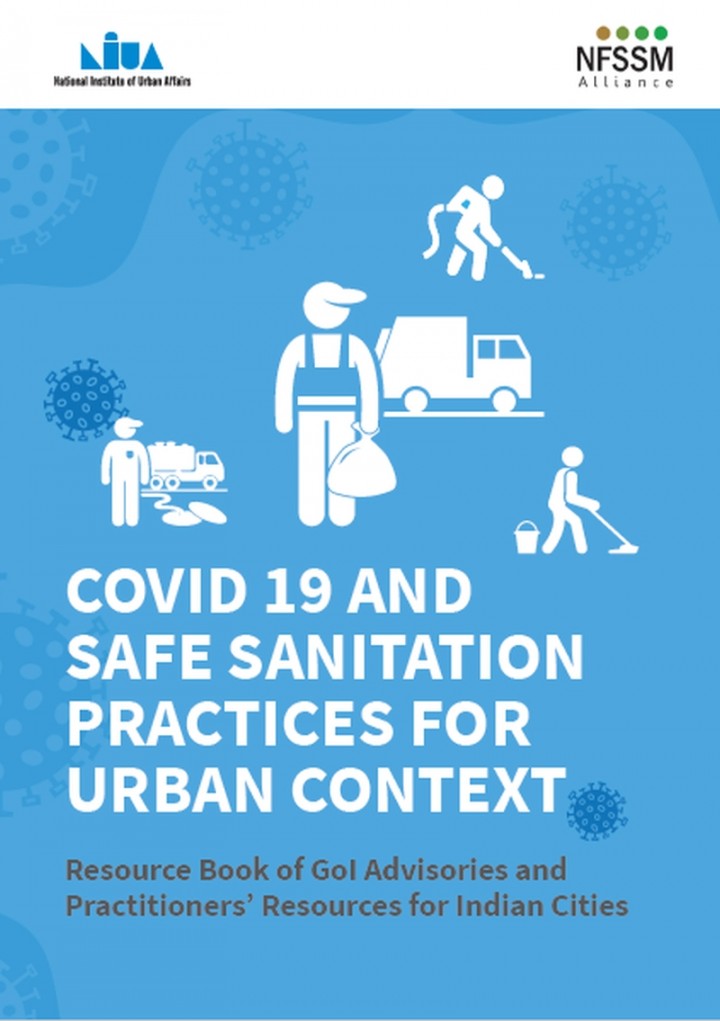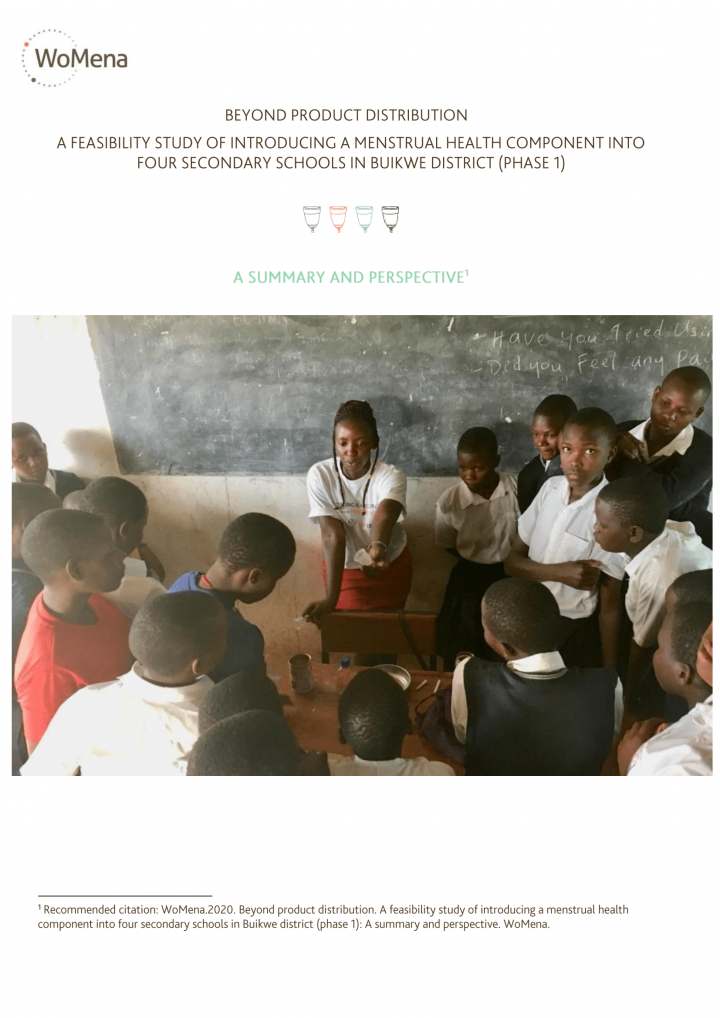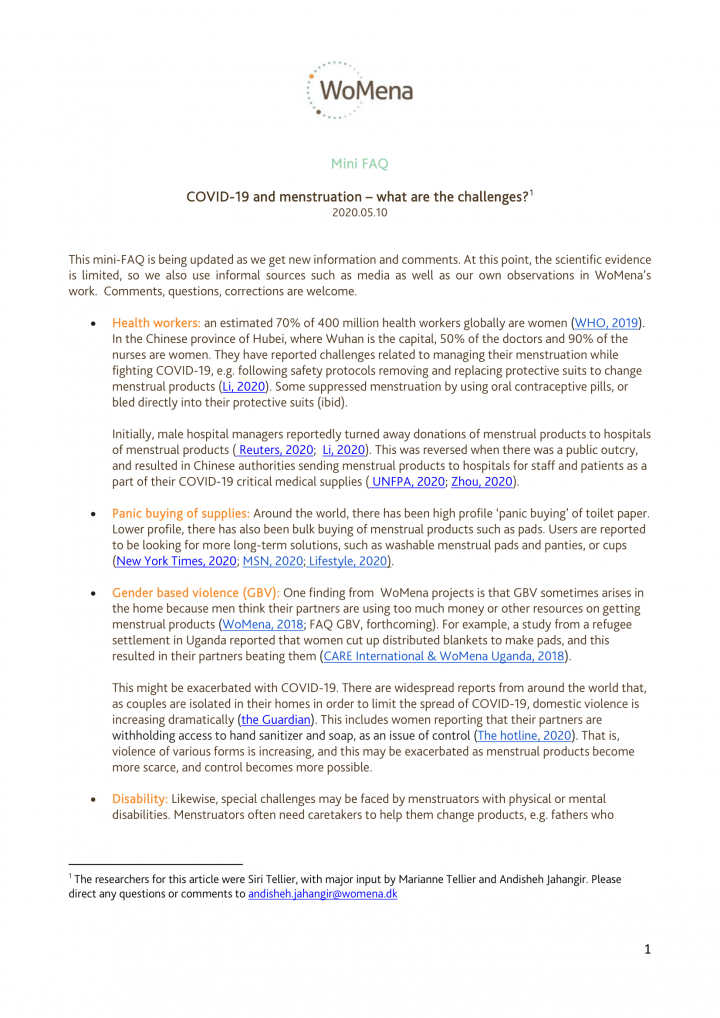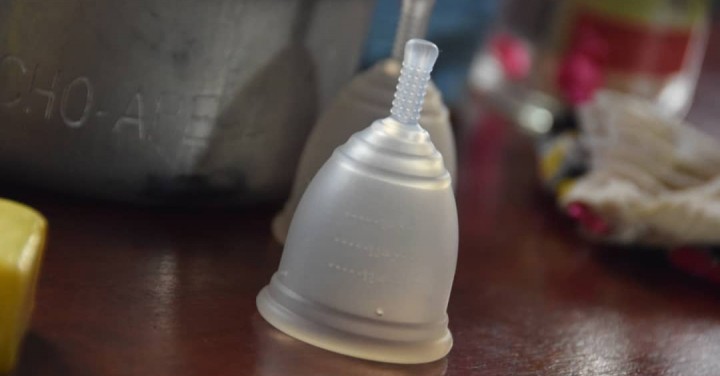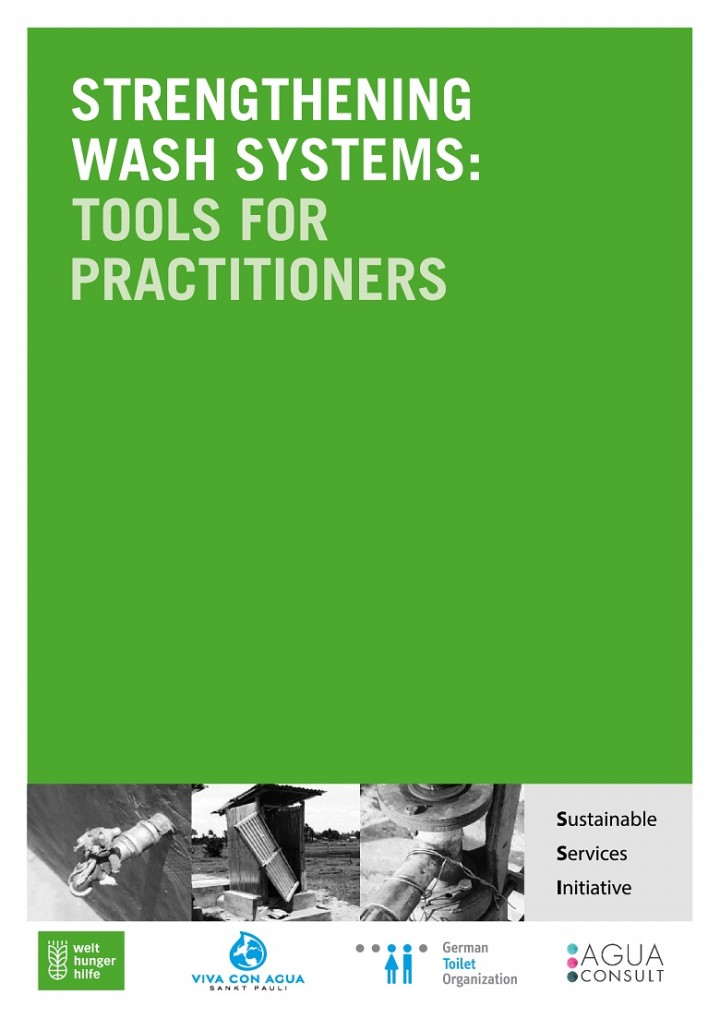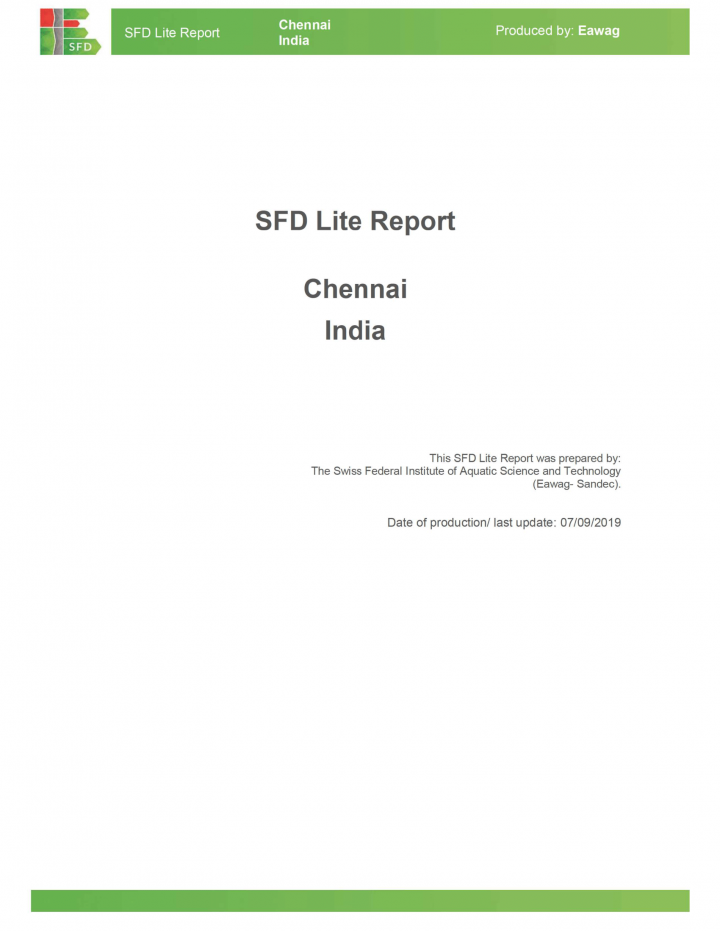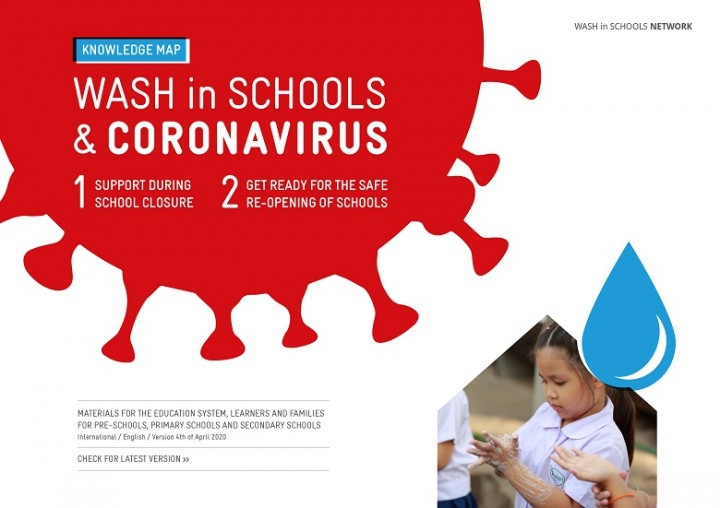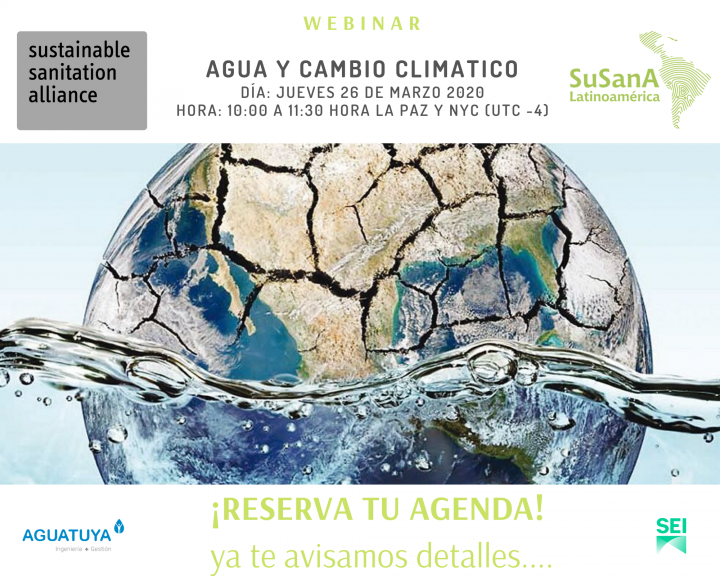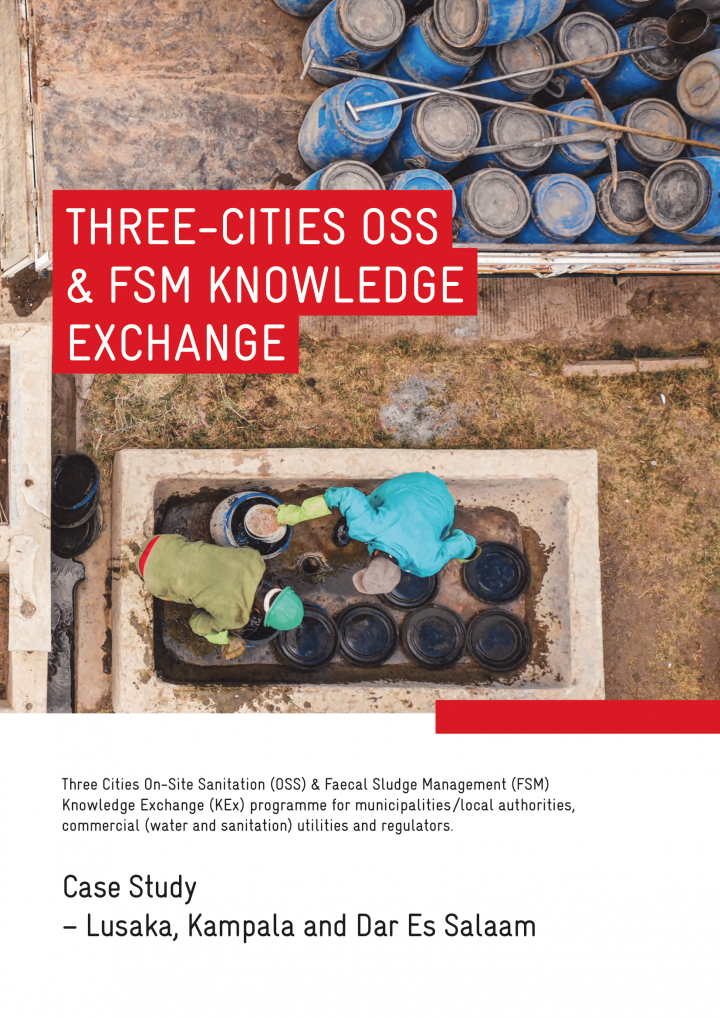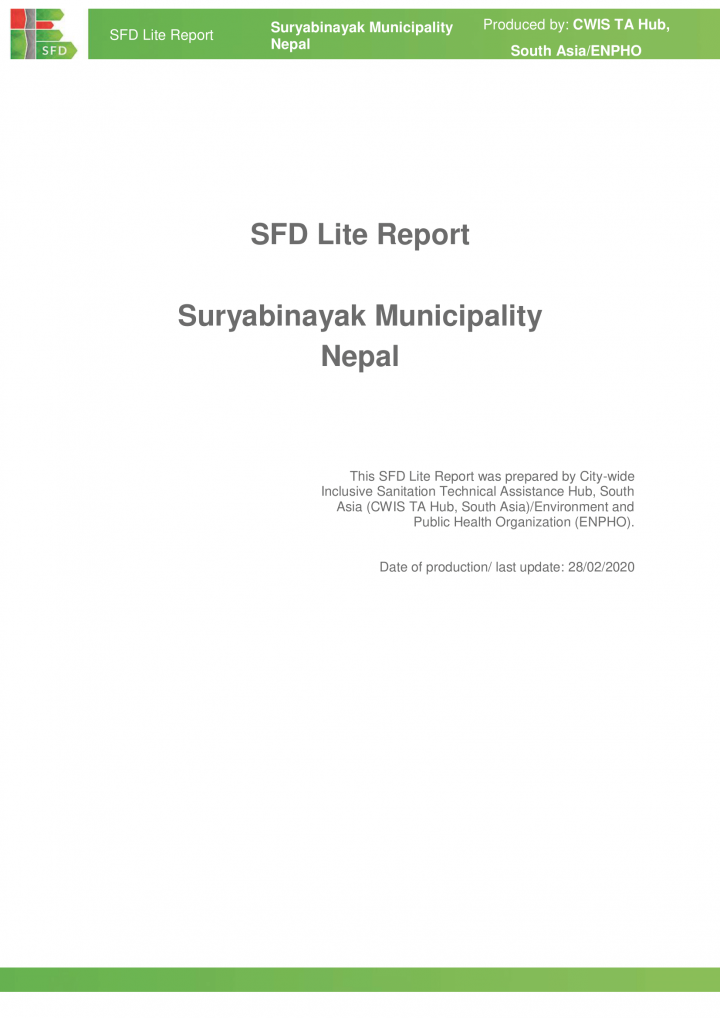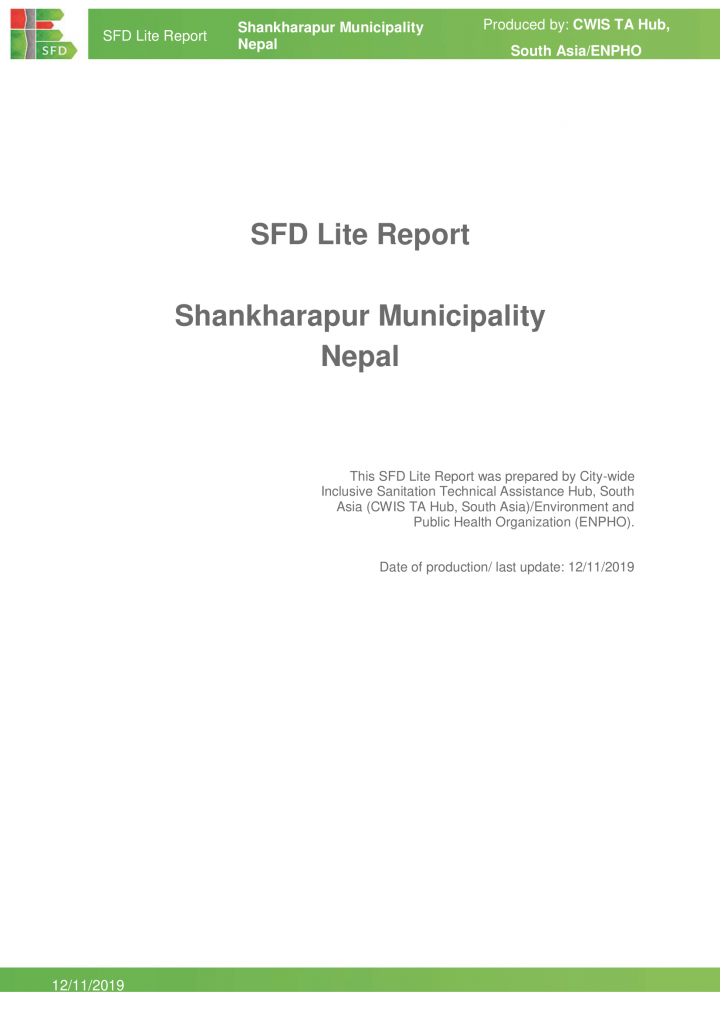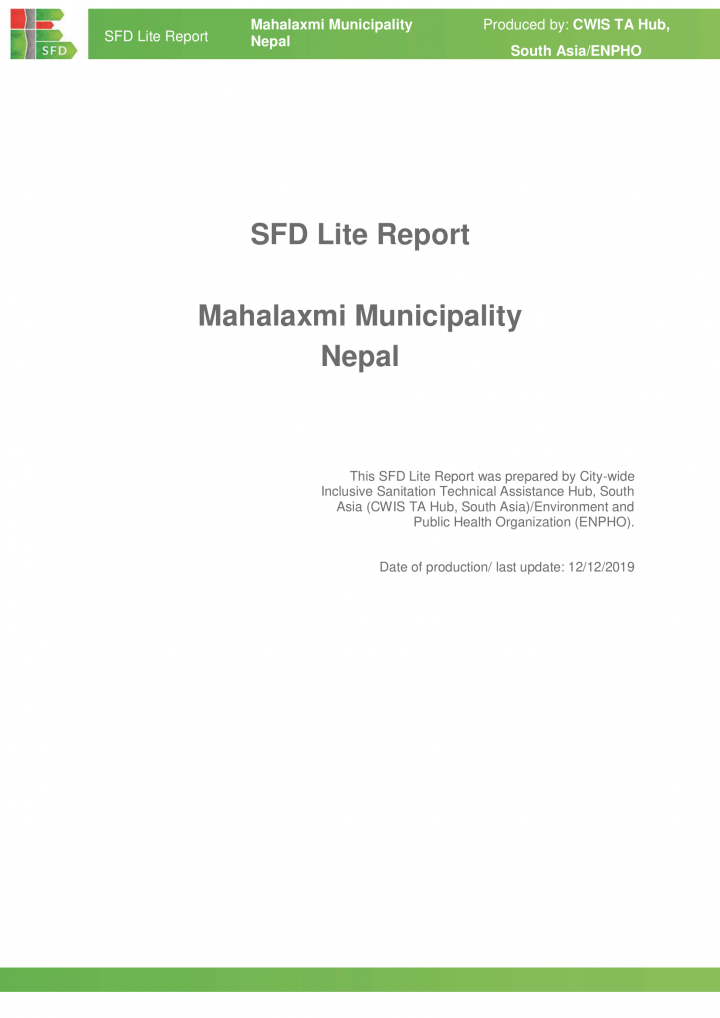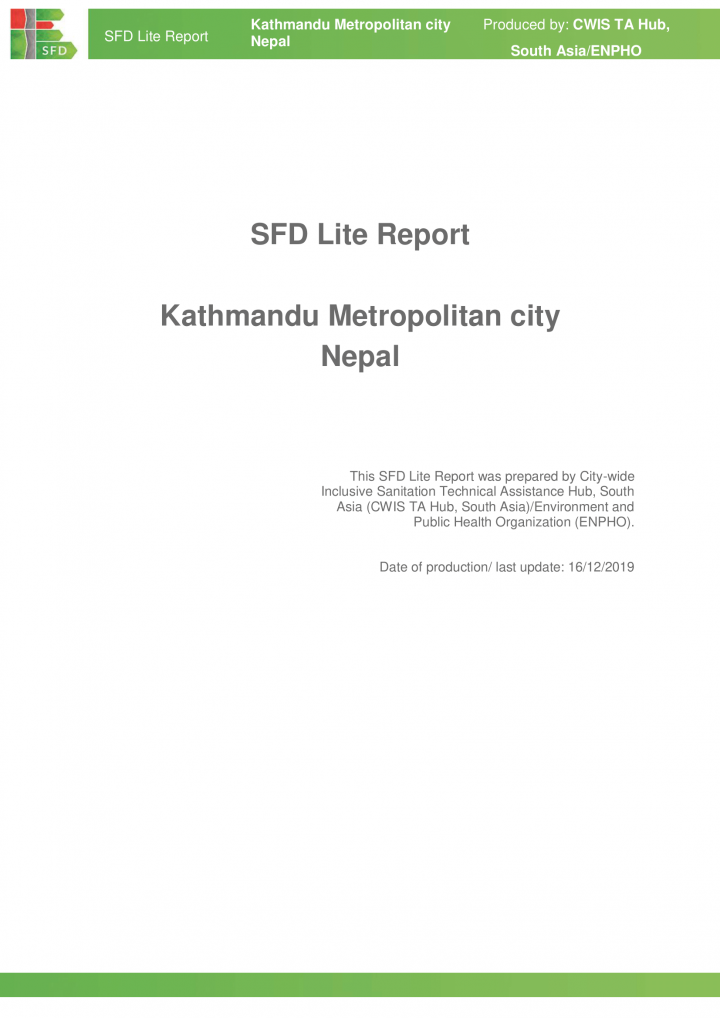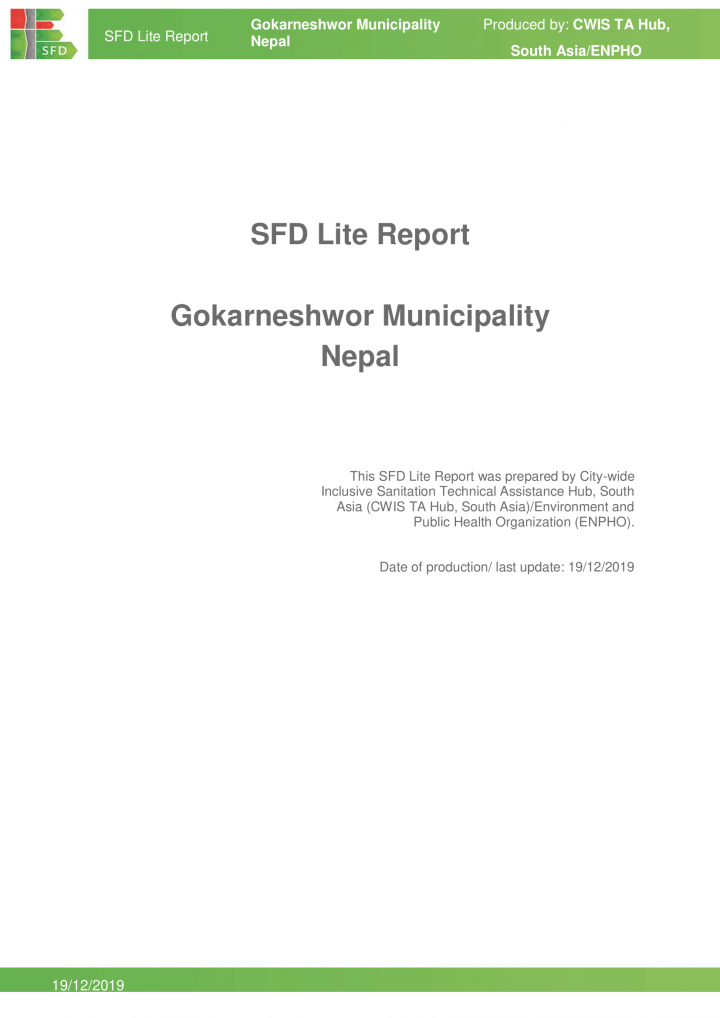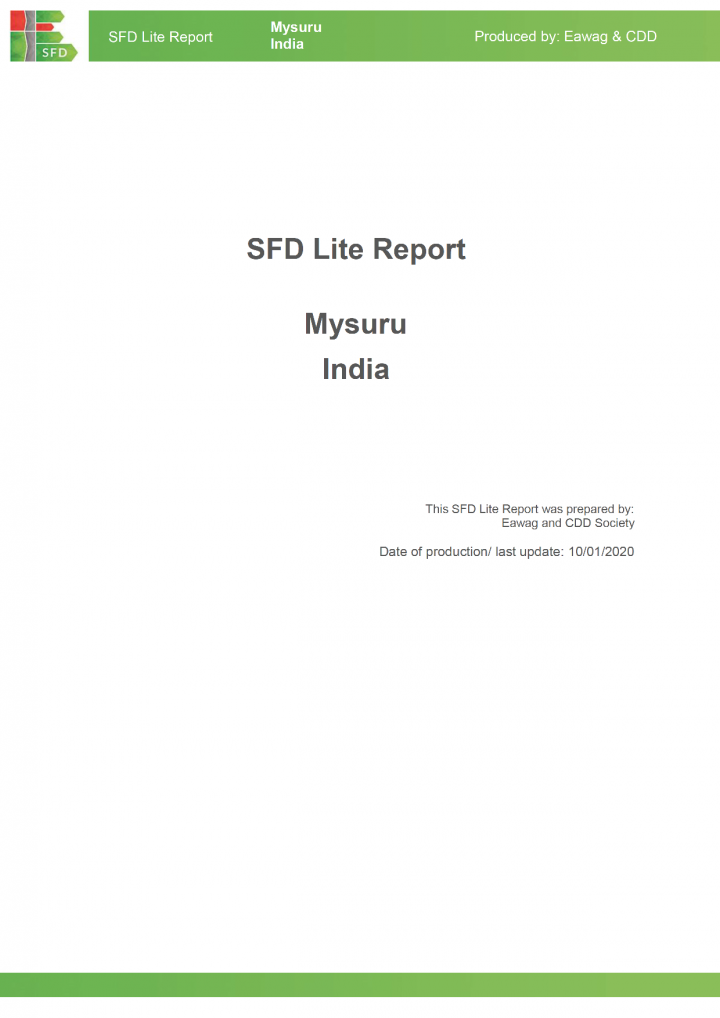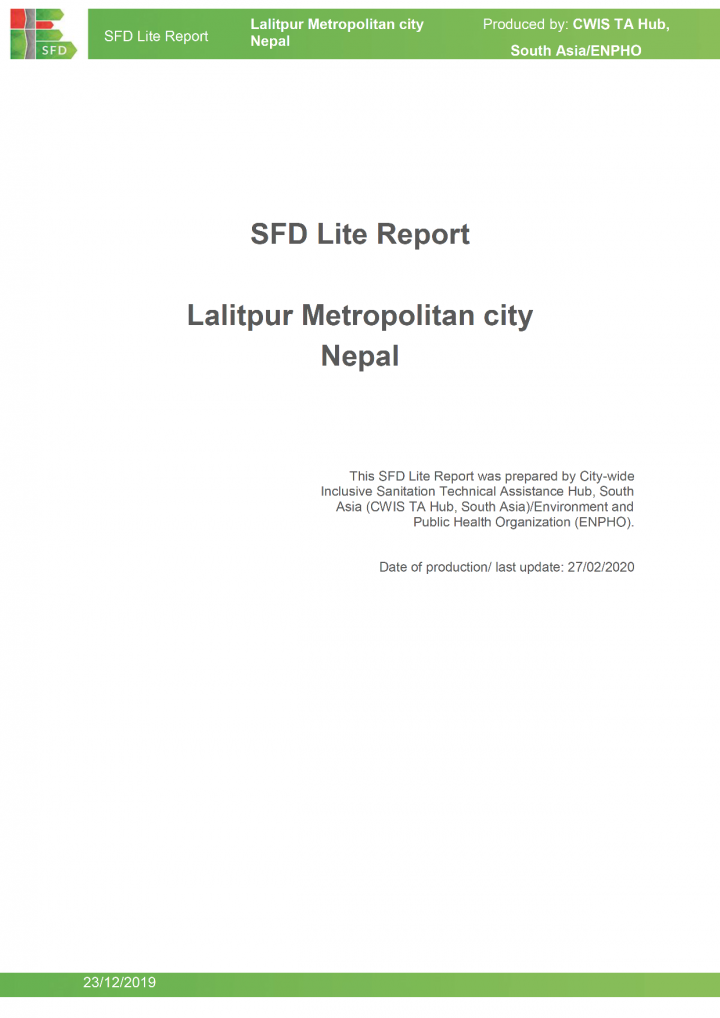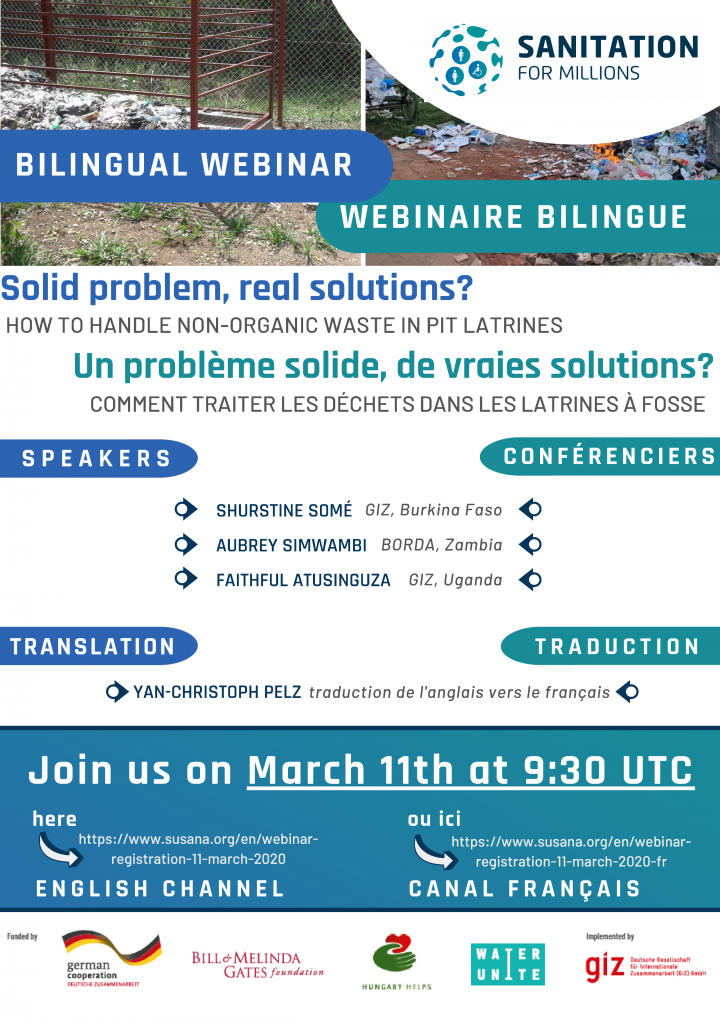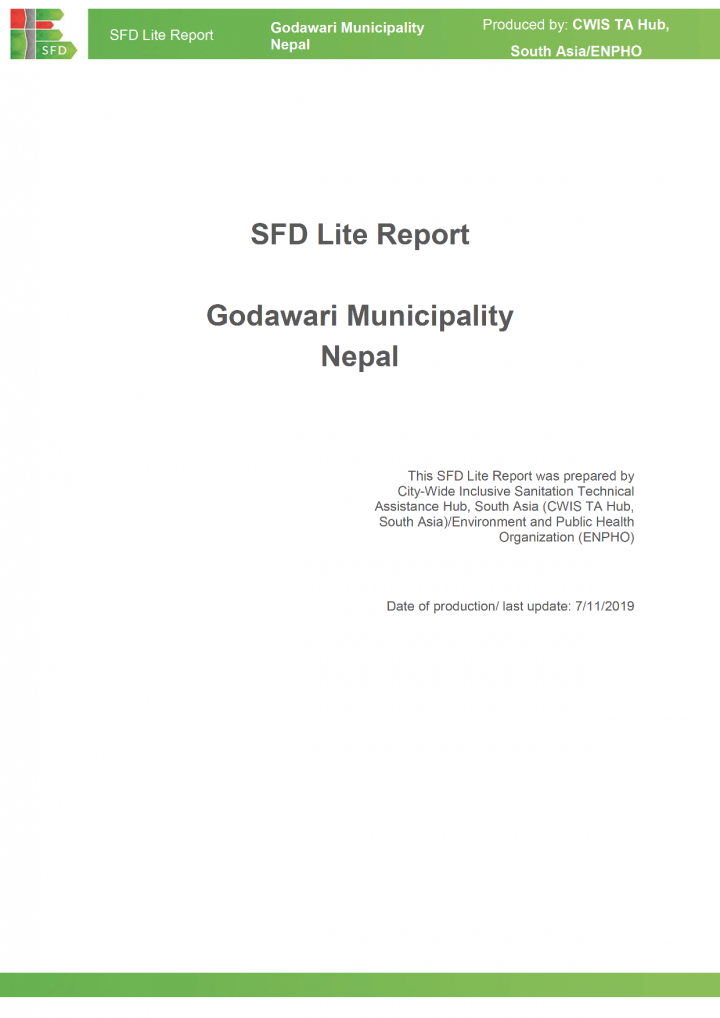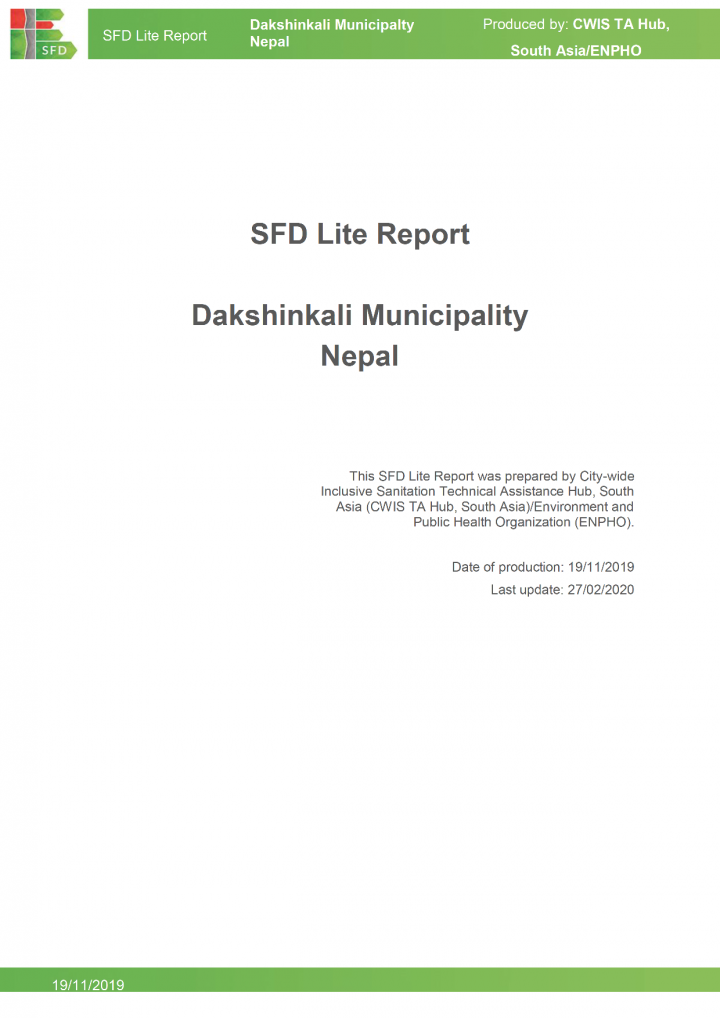Searching for information on Sanitation Workers?
The Sanitation Workers Knowledge + Learning Hub is the best source for all current news, trends, articles and updates on sanitation workers rights around the world.
This Resource Book is a compilation of important Govt of India Advisories and other Knowledge Resources relating to Urban Sanitation and COVID. National Institute of Urban Affairs (NIUA) along with the National Faecal Sludge and Septage Management (NFSSM) Alliance Partners, has taken up this initiative of creating a repository of important government advisories and practitioners’ guidance …
EXECUTIVE SUMMARY
In Sub-Saharan Africa (SSA), menstrual health is often considered a taboo and many girls and women lack access to safe and appropriate menstrual health management (MHM) products. This can have far-reaching implications for women and girls’ physical, social and mental wellbeing, as well as for their sexual reproductive health and rights. These MHM issues are often further …
This mini-FAQ is being updated as we get new information and comments. At this point, the scientific evidence is limited, so we also use informal sources such as media as well as our own observations in WoMena’s work. Comments, questions, corrections are welcome.
WoMena’s contribution: WoMena works in a wide range of contexts in Uganda, including refugee settlements. In the COVID-19 …
WoMena receives many questions from the women and girls we reach out to, from our trainers and our partners. Therefore, the team collect a series of questions and answers regarding topics like Menstrual Cups functionality, maintenance, health & safety, economy, and other concerns.
WoMena periodically update the questions and answers.
# Context
The list of publications in this entry are outputs of two BMGF funded projects with our collaborators Tide Technocrats in India (OPP1188987) and Duke Center for WaSH-AID (OPP1173370).
# FSM5 Conference; Cape Town, South Africa, 2019
Presentation: Demonstrating Pathogen-Free Thermal Treatment Solutions Towards ISO/PC 318 Energy Neutrality Requirements
Presentation: …
The Sustainable Development Goals set ambitious water, sanitation, and hygiene (WASH) targets. Persistent failure to sustain services has plagued the WASH sector for decades, and there is an ever-growing recognition that for services to be sustainable and operate at scale, the wider WASH 'system' needs to be sufficiently robust to enable, support and sustain such services. This requires a …
Chennai, the capital of state of Tamil Nadu is located on a flat coastal plain known as the Eastern Coastal Plains. It is the fourth largest metropolitan city in India. The estimated present population of the city is 7.1 million. Overall, the SFD Graphic depicts that 62% of excreta is safely managed while 38% is discharged untreated to the environment. The wastewater system for the city has been …
The Global Handwashing Partnership Think Tank series brings together hygiene experts from civil society, government, research institutions, and the private sector to drive learning and action in handwashing behavior change. The 2018 Think Tank was hosted in Manila, Philippines, from October 10 – 12. The presentations can be found in the annex of the report.
From December 2016, the German-funded project ClimateFriendly Sanitation Services in Peri-Urban Areas of Lusaka (CFS-Lusaka) implemented by GIZ on behalf of the German Federal Ministry for Economic Cooperation and Development (BMZ) supported stakeholders to strengthen on-site sanitation (OSS) and safe faecal sludge management (FSM) in the fast-growing Zambian capital within the context of the …
The WASH in Schools Network (UNICEF, GIZ, Save the Children, WATERAID; Emory, LSHTM, among others) has compiled this knowledge map with links to relevant materials about COVID-19 for learners, their families and the education system. The map is intended for the time when schools are closed and in preparation for re-opening of schools. We want to help you navigate through the jungle of information …
Webinar sobre diferentes acciones y experiencias que se aplican en la gestión del agua con medidas de prevención, adaptación y mitigación al cambio climático realizado por SuSanA Latinoamérica. Con la moderación de Lourdes Valenzuela, coordinadora regional de SuSanA Latinoamérica y presentaciones de Bianca Corona, asesora técnica de GIZ en México, Gustavo Collere, gerente de …
Sphere and its partner standards can guide our response. In situations of insecurity with the danger of misinformation and stigmatisation, it is important to understand and apply the most important and basic principles and actions to help limit the spread of the virus. There are tools from the humanitarian sector that can directly support your COVID-19 response. The sector has been gathering …
The Three Cities On-Site Sanitation (OSS) and Faecal Sludge Management (FSM) Knowledge Exchange (KEx) Case study provides detailed highlights of the capacity development initiative that was undertaken in three sub-Saharan African cities; Kampala (Uganda), Dar Es Salaam (Tanzania) andLusaka (Zambia). The KEx initiative was aimed at enabling keystakeholders from the three cities municipalities/ …
Suryabinayak Municipality is located in Bhaktapur District in Province No. 3 of Nepal. It consists of 10 wards with the total population of 113,471 people residing in 19,179 households. The majority (74%) of the households are dependent on piped water facility, 8% of the households rely on spring water and the remaining 18% are dependent on their own sources such as tap water (bore water) and …
This study was the first to comprehensively assess the possibility of eco-sanitation options to help address village wastewater challenges in Vermont. In each village, site visits were conducted with participants to gauge the feasibility of a variety of composting and urine-diverting toilet systems. Of the options considered, a urine diverting flush toilet was identified as one of the more …
Shankharapur Municipality is located in Kathmandu District in Province No. 3 of Nepal. It consists of 13 wards with the total population of 27,202 people residing in 5,607 households. The main sources of drinking water in Shankharapur Municipality are public taps, household bores and wells. Majority of the population are dependent on the public water supply (75%) and remaining 25% of the …
Mahalaxmi Municipality is one of the historic municipalities of Lalitpur district located in province no.3 of Nepal. The municipality consists of 10 wards with the total population of 112,157 people residing in 70,256 households. The main sources of drinking water in Mahalaxmi Municipality are public taps, household bores and wells. 23% of the population are dependent on sewer system. The most …
Kathmandu Metropolitan city is the eldest metropolitan city and capital of the Federal Democratic Republic of Nepal, located in Kathmandu district of Province no.3 of Nepal. The city consists of 32 wards with the total population of 1,347,011 people residing in 298,752 households. Majority of the population of Kathmandu Metropolitan city are dependent on sewer system, followed by lined tanks with …
Gokarneshwor Municipality is located in Kathmandu District in Province No. 3 of Nepal. The municipality consists of 9 wards with the total population of 107,351 people residing in 27,106 households. Majority of the population are dependent on public taps as the main source of drinking water. The remaining population are dependent on spring water, tap water (bore water) and wells. Most of the …
Rajgir is an ancient town within the district of Nalanda in the state of Bihar. According to Census (2011), Rajgir has a total population of 41,587 living in 7,030 households. 20% of the excreta is managed safely and 80% is unsafely managed. Approximately, 10% of the population is covered under a centralized underground sewerage network. Despite the presence of a sewer network, 60% of the …
Mysuru City is situated in southern part of the state at 770 m above sea level. According to the census 2011, the population of Mysuru was 893,062 and number of households (HH) were 209,650. Overall, the SFD Graphic depicts that 72% of excreta is safely managed while 28% is discharged untreated to the environment. Wastewater through sewer systems is generated by 92% of the total population of the …
Lalitpur Metropolitan city which literary means ‘the city of fine arts’ is located in Lalitpur district of Province no.3 of Nepal. The city consist of 29 wards with the total population of 284,922 people residing in 70,256 households. The main sources of drinking water in the city are taps (municipal water supply), tap water (bore water) and wells. Majority of the population of Lalitpur …
This webinar brought together two GIZ programmes working on access to safe sanitation along the entire sanitation service chain: Scaling up of Drinking Water and Sanitation Supply in Burkina Faso and Sanitation for Millions (project component Uganda).
Joined by BORDA Zambia, implementing experts from the three countries presented their experiences from the field:
• Behaviour: Why do users …
Godawari Municipality is located in Lalitpur District in Province No. 3 of Nepal. The municipality consist of 14 wards with the total population of 116,045 residing in 18,232 households. The majority of the population use lined tanks with impermeable walls and open bottom followed by fully lined tanks, lined pits with semi-permeable walls and open bottom, pits (all types) never emptied but …
Dakshinkali Municipality is located in Kathmandu District in Province No. 3 of Nepal. The total population is 24,297 people residing in 6,925 households. Majority of the population (80%) are dependent on public taps and the remaining 20% of population are dependent on spring water. 14% of the population depend on an offsite sanitation system but most of the population in Dakshinkali Municipality …

